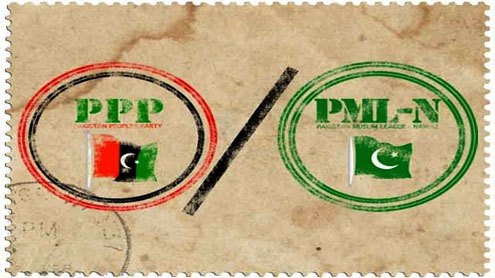 Egypt’s military has outlined a timetable to hand power to an elected government, insisting it does not want political power in a country where it propped up an authoritarian state for six decades. The army, praised for overseeing a mostly peaceful revolution, is running into a storm of wage and subsidy demands overtaking pressure for democracy and piling more burdens on an already teetering economy. Pro-democracy marches have subsided but thousands of workers in banks, textile and food factories, oil facilities and government offices went on strike this week, emboldened by the overthrow of President Hosni Mubarak.
Egypt’s military has outlined a timetable to hand power to an elected government, insisting it does not want political power in a country where it propped up an authoritarian state for six decades. The army, praised for overseeing a mostly peaceful revolution, is running into a storm of wage and subsidy demands overtaking pressure for democracy and piling more burdens on an already teetering economy. Pro-democracy marches have subsided but thousands of workers in banks, textile and food factories, oil facilities and government offices went on strike this week, emboldened by the overthrow of President Hosni Mubarak.
“The Higher Military Council expressed its hope to hand over power within six months to a civilian authority and a president elected in a peaceful and free manner that expresses the views of the people,” an armed forces statement said on Tuesday. “The council affirmed that it does not seek power, that the current situation was imposed on the armed forces and that they have the confidence of the people.” The Islamist Brotherhood, which did not play a leading role in the revolution but has been Egypt’s best-organized opposition group for many years, said it wanted the military to carry out further steps immediately. “We, together with the entire nation … are in need of a bridge of confidence between the army and the people,” Essam al-Erian, a senior Brotherhood member, told Reuters, referring to lifting emergency law and releasing political prisoners.
Egypt’s central bank said banks would remain closed on Wednesday and Thursday after being closed on Monday by strikes. Some secular leaders fret that racing into presidential and parliamentary elections in a nation where Mubarak suppressed most opposition activity for 30 years may hand an edge to the Brotherhood. A committee headed by an independent judge that met on Tuesday has been given 10 days to draft amendments to the constitution. The plan is to then put these to a referendum. “When the popular demand for the freedom to form parties is realized, the group will found a political party,” the Brotherhood said in a new statement.
Pro-democracy leaders plan a big “Victory March” on Friday to celebrate the revolution — and perhaps also to remind the military of the power of the street. In Tahrir Square, scene of clashes between protesters and police during the revolt, traffic flowed freely on Tuesday. Army tanks and armored vehicles around the square and other Cairo locations have now been sandbagged into position. Rumors swirled about Mubarak’s health. Saudi-owned Asharq al-Awsat newspaper said it was deteriorating and the deposed president had refused to go abroad for treatment.
A military source said Mubarak, 82, believed to be in the Red Sea resort of Sharm el-Sheikh, was “breathing.” Another Egyptian source with links to the family said he was unwell. But a source who said he spoke to Mubarak on Tuesday described him as “fine” and receiving telephone calls. U.S. President Barack Obama condemned Iran’s crackdown on unrest inspired by Egypt’s uprising, and urged Middle Eastern states to take heed of their peoples’ aspirations for democracy. “I find it ironic that you’ve got the Iranian regime pretending to celebrate what happened in Egypt, when in fact they have acted in direct contrast to what happened in Egypt by gunning down and beating people who were trying to express themselves peacefully,” he said.
In Bahrain, Shi’ite protesters camped out in a central square to press demands for change after a day of unrest inspired by the revolts in Egypt and, weeks earlier, in Tunisia. Analysts say large-scale unrest in Bahrain, home to the U.S. Navy’s Fifth Fleet and a regional offshore banking center, could embolden marginalized Shi’ites in nearby Saudi Arabia, the world’s biggest oil exporter. – Yahoo News












